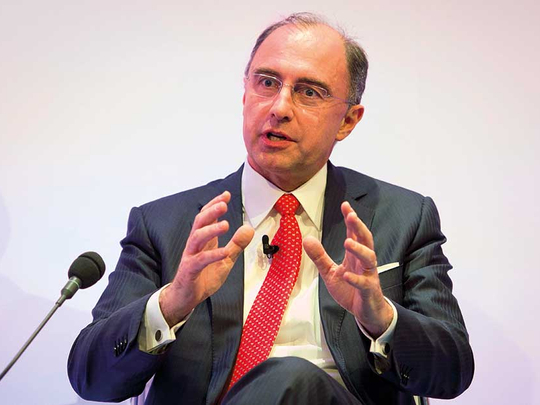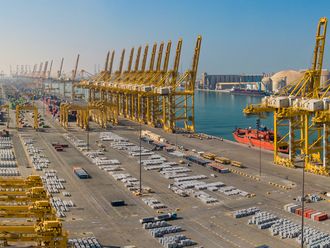
London: London Stock Exchange Group Plc’s Xavier Rolet will leave by the end of next year, bringing an end to an era that has seen the shares soar despite the collapse of a $14 billion (Dh51 billion) deal that would have created a European exchange powerhouse.
The LSE said in a statement Thursday that it will start a search for a successor to Rolet, who has been in charge since May 2009. Rolet would have retired this year if all had gone to plan with the merger with Deutsche Boerse AG, but regulators blocked the takeover on antitrust concerns.
“He has a number of good lieutenants, but they would want to scan the market given the likely changes in the exchange world,” said Niki Beattie, founder of consultancy Market Structure Partners in London. “Given he is not going until December next year, I expect that is to give them time to have a good look around.”
Rolet, whose career started in the 1980s as a trader at Goldman Sachs Group Inc, transformed LSE from a business mostly focused on cash equities into a group with strong positions in most parts of modern market structure. In his first year in charge, the Frenchman acquired a controlling stake in Turquoise, an off-exchange stock-trading venue. Rolet also built the world’s largest index business, FTSE Russell, by purchasing Frank Russell, Citigroup Inc’s index assets and the rest of FTSE International in separate deals.
“I am extremely proud of all we have done together in just under a decade to turn LSEG into a truly global financial market infrastructure group,” Rolet said in the statement. Britain’s decision to leave the European Union marked a watershed moment for the company. While Brexit gave Rolet, a former French Air Force officer, a critical role in protecting the City of London, LSE’s dominant role in clearing became politically charged after the vote.
Key battleground
LSE’s LCH unit, the world’s biggest clearing house, quickly became a focus of European politicians seeking to take business from post-Brexit London. Rolet has been a vocal critic of European calls to force the relocation of clearing, a profitable business for the exchange and a key battleground for the financial-services industry. LCH has flourished nevertheless, and yesterday named Daniel Maguire head of the division.
“He obviously wants to go out on a high note,” said Beattie. “Exchanges are facing increasing challenges from emerging technologies. The exchange has had a great run, but it’s probably time for a new strategy and it will need someone who will bring in fresh ideas.”
LSE shares have climbed more than fivefold since Rolet took charge in 2009. They fell 0.9 per cent to 3,884 pence in London trading on Thursday.
The Deutsche Boerse deal provoked fierce opposition from German politicians because Rolet ensured that the combined group would be headquartered in London rather than Frankfurt. Ultimately, the European Commission killed the deal, arguing that merging the companies would have created a de facto monopoly for clearing bonds and repurchase agreements.
In a separate statement, LSE said that third-quarter revenue climbed 17 per cent to £486 million (Dh2.4 billion, $642 million), led by a 26 per cent jump in sales at LCH, the clearing house in which Rolet bought a majority stake in 2012.
“Anyone coming in to run a European exchange is going to find it pretty tough because it looks impossible to merge with another European exchange or to be acquired by someone,” said Steve Grob, director of group strategy at Fidessa Group Plc. “It’s a tricky job.”












